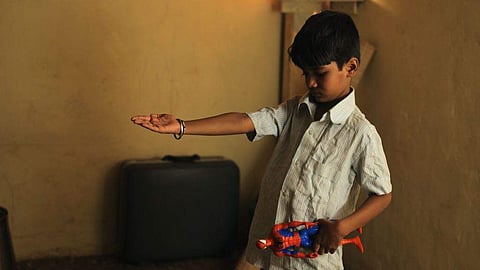

At the age of 15, Rajat Agrawal had the inkling that directing movies was his calling, thanks to an international children's film festival for which he happened to direct a film. He not only pursued a course from New York Film Academy (NYFA), Los Angeles, but he also completed a creative writing workshop at Oxford Royale Academy, UK. And by the time he turned 21, he was assisting director Sooraj R Barjatya in what was to become India's ninth highest grossing film worldwide, the Salman Khan-starrer Prem Ratan Dhan Payo.
It was his single-minded confident resolve, coupled with the fact that his second short film, Khilauna, has been selected for the Urbanworld Film Festival — an Oscar-qualifying film festival, that tickled our curiosity. "It was not just about confidence. The support I received from my family also contributed to my decision to opt for this path," says Agrawal, as we caught up with the Mumbai-based filmmaker.
Collating the lessons he learnt from collaborative teamwork and those he learnt from Sooraj Barjatya about being a humble director, Agrawal went on to direct his first short film Kathputli, a film about women empowerment which was laden with metaphors (just the way he likes it). It made it all the way to the New York Film Festival, but it is Khilauna that we want to talk about today. It is a story which juxtaposes the worlds of a pampered child and a deprived one (Raju) and the kind of relationship they share with their toys. While for the deprived soul, toys stand for hopes and dreams, for the privileged, it is just another object.
Shot within two days with a team of 20 to 25 people, his second short film has well-thought-out characters. "I did not do anything unorthodox to achieve this, I just took my time to figure out what the character wants and put myself in their shoes every step of the way till I had the answer to every question,” he says, explaining his process. But one question he did not have the answer for, at least till the auditions, was the climax. The story was supposed to end with Raju's mother hitting him, but in his heart, Agrawal knew that it wasn't the perfect ending. It was only when he cast Raju's mother (who also acted in his first film), who was pregnant in real life, that he realised that her natural condition would add flavour to the character. And as he goes on to explain further, he quickly stops himself, and just in the nick of time, from revealing the climax.
With this story, he wants to point out the stark contrast that exists in the two stratas of society and that sometimes, kids in the higher strata are pampered a tad more than they should be.
